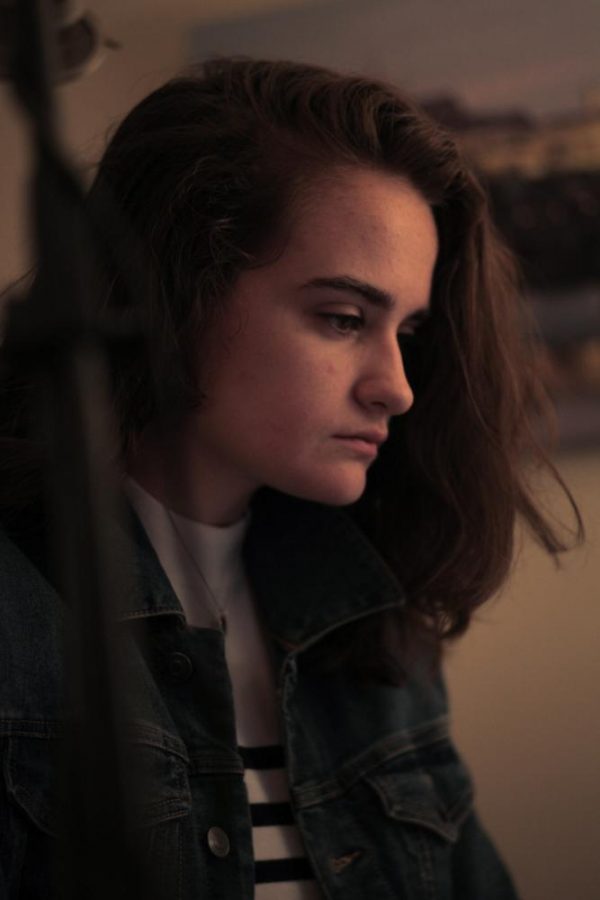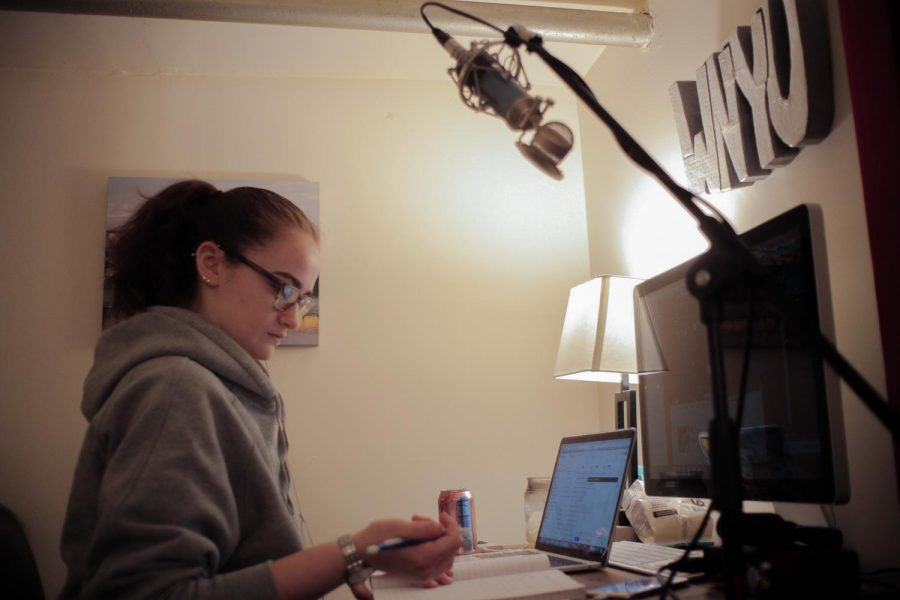
Kelly Drake was on top of it all. Prior to NYU’s closure of its facilities, the Steinhardt junior was pursuing a major and three minors, all while holding the position of Program Director at the WNYU radio station, producing two personal podcasts, working on an independent feature-film and managing a band called Recreational Mouthwash. Drake’s life up until several weeks ago revolved around her artistic pursuits, and she had the structure in place to get it all done.
“I felt more productive than I ever had been,” Drake told WSN on a video call. “I had just perfected my routine and my schedule so well. And then, coronavirus hit.”
NYU’s decision to close its facilities for the rest of the semester amid concerns regarding the ongoing pandemic left many of Drake’s projects in creative limbo. She postponed her shooting dates for her film indefinitely. The band she manages can’t perform or book any live shows to promote their new music. But beyond these setbacks, Drake has managed to keep one creative outlet going: the airwaves.
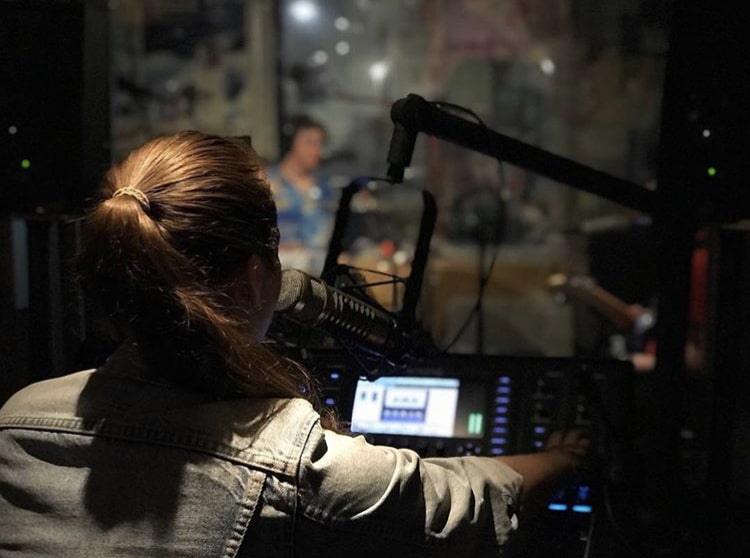
Early rumblings of NYU’s shift to remote instruction prompted Drake and the other overseers of the WNYU radio station, including General Manager and CAS senior Liam McBain, Business Director and Steinhardt junior Kate Gallagher, News Director and Gallatin senior Anna Van Dine and Associate News Director and CAS senior Arya Tousi to develop a contingency plan that would allow the station to continue even if no one could access the physical studio. Through the help of some tech wizardry courtesy of Drake’s roommate, Steinhardt junior Shane Patterson, WNYU was able to establish a network that would allow them to remotely transmit content to the physical studio.
“What we decided was that we were going to try to find a way to not move anything out of the station, but just put things from my apartment into the station’s system,” Drake said. “The tech is way over my head and it’s something I don’t understand, but I’ve been learning more about it.”
Drake’s main priority as Program Director of the station following the transition to remote broadcasting was to communicate with the DJs of each of the thirty-plus shows the station hosts and give them the option to continue their shows if they wanted to. Drake said she expected that many wouldn’t have the means or the desire to, but she found that the overwhelming majority of them wanted to keep their shows going.
“Overwhelmingly so, people were like, ‘Yes, oh my God, thank you so much. I need this outlet. I need this structure,’” Drake said.
Now, the station has managed to continue hosting virtually all of its programming prior to the shift to remote production, with approximately 40 DJs putting on regular shows.
“Radio is the thing that keeps going in a crisis,” Drake said. “This is a sad and scary time for a lot of people, but if we can give our DJs the opportunity to still host their shows once a week, even if they’re doing it from their homes or wherever they ended up, that’s important.”
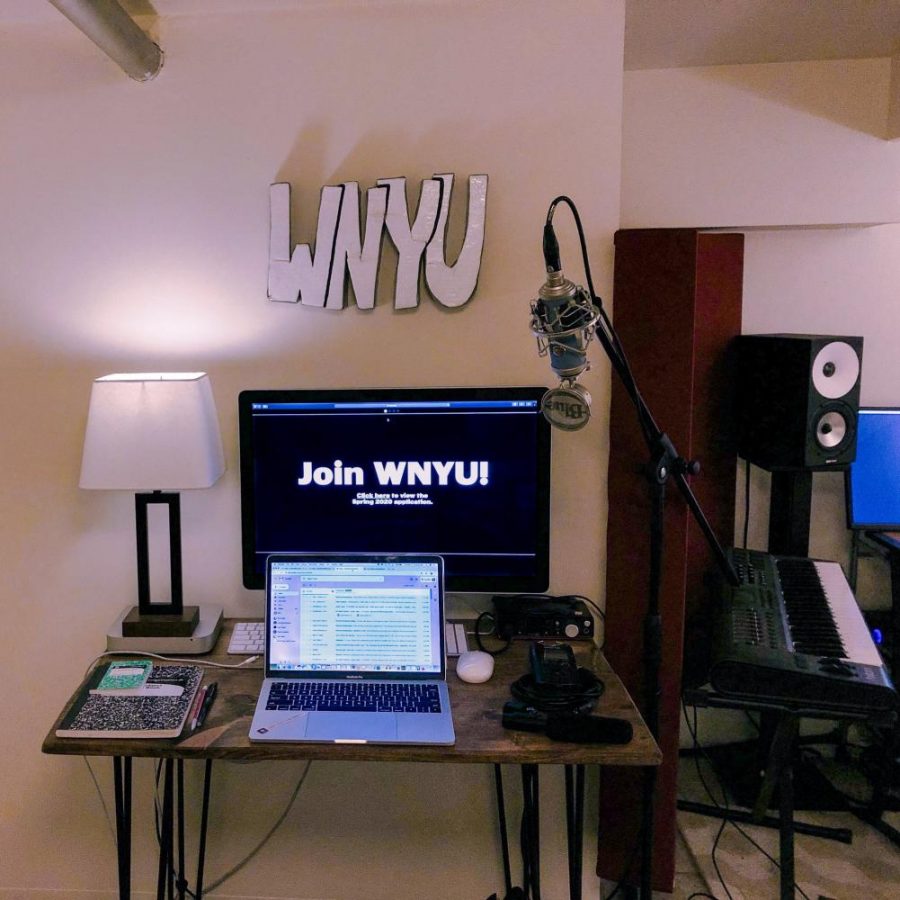
On a more personal level, Drake was looking for what she could do to make the lives of those displaced by the response to the pandemic at least a little bit better. She recalled the feeling of helplessness she felt as she saw the multitude of people displaced by NYU’s shift to remote instruction.
“I was heartbroken for all the people who were displaced because of this,” Drake said. “I was seeing friends posting on their Instagram stories like, ‘Hey, does anyone have a place I can live for the next few months?’ And I don’t have that. I have a couch, but does someone want to live on a couch for a few months? What can I do to help? There’s nothing. It was insane to me that people were being left with nothing. No resources, no information. I thought that was horrible.”
For Drake, radio was the answer; not just for her own desire for a creative outlet or for the DJs who wanted something similar, but for the audience. Above all, Drake wanted to frame the presence of the radio station as a force that provided its dedicated listeners with a comforting connection to their lives prior to the pandemic.
“We’re providing people some sense of normalcy amidst all the chaos that is life right now,” Drake said. “On our end, it’s quite a bit of restructuring, but to the listeners, we’re a constant.”
Along the same sentiment, Drake also made the decision to personally continue her own two podcasts, “Theatre in the Sound” and “Hop in my U-Haul,” both of which she produces and hosts.
“I was under no obligation to continue them,” Drake said. “I wanted to. I think that especially with all the media circulating around now that is centered on COVID-19, to be able to put out something that people can listen to and sit with and feel that’s not rooted in anxiety and the pandemic is super important.”
Though she has the ability to work on the podcasts from her apartment, the format and content of both podcasts necessitated that she temporarily adapt their production processes. “Theatre in the Sound,” which primarily features one-act, standalone audio dramas, currently relies on the show’s producers to develop the sound effects to go along with recorded actors’ dialogue from their home. “Hop in my U-Haul,” which features interviews and documentary-type explorations into the history of LGBTQIA+ spaces in New York City, has required even more substantial format changes.
“‘Hop in my U-Haul’ is centered around spaces, and all the spaces are closed right now,” Drake said. “What I’ve had to do is kind of shift my focus. I’m sticking with spaces, but what I’m doing is looking at digital spaces.”
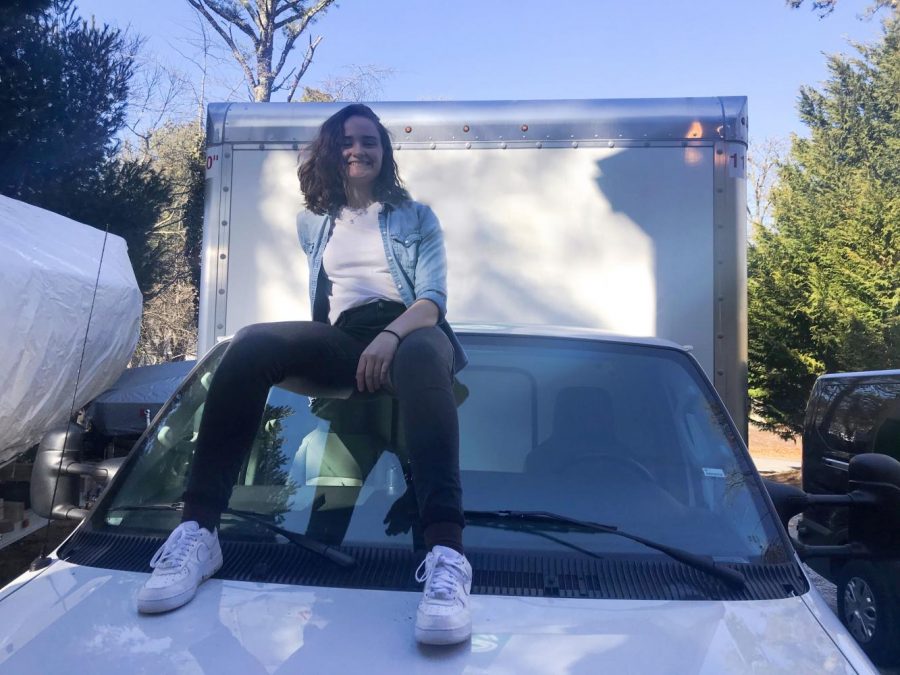
Drake, who identifies as a lesbian woman, noted the added importance of the podcast that focuses on the LGBTQIA+ community at a time like this one, its emphasis on a shared community could offer some valuable comfort to people physically displaced from those spaces at the moment. Its featuring of LGBTQIA+-owned businesses with digital storefronts and sales options could additionally help support those in the community who are currently struggling financially.
“I think queer people have always rallied in tough circumstances,” Drake said. “Being able to highlight the spaces that are adapting to their circumstances is very in keeping with the spirit of the queer community all throughout history.”
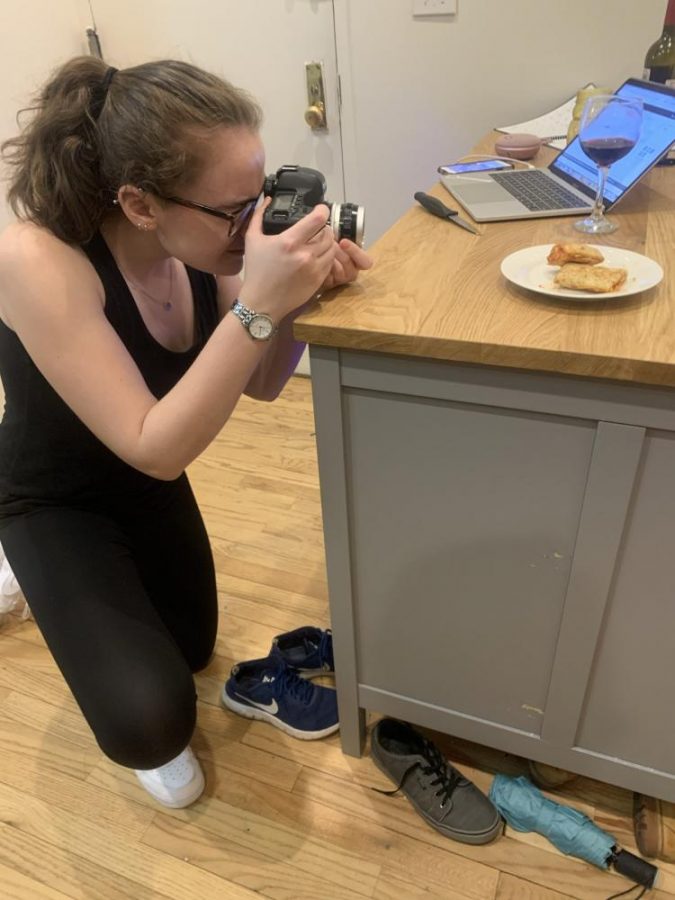
Drake emphasized that she wanted to highlight the more personal aspect of how the pandemic has affected the LGBTQIA+ community, rather than simply focusing on statistics and numbers. She was inspired by other news outlets that had stories and content with a similar focus.
“My favorite news reports during this time have been ‘This American Life’ and ‘Radiolab,’ where they’re not sitting down and talking about, ‘Here are the numbers and people are dying,’” Drake said. “That’s important to be hearing, but we need places where you’re not hearing that as well.”
Though she has attempted to maintain the same level of polish on her podcasts from before the outbreak of the pandemic, Drake acknowledged that there were some elements that the new process can’t perfectly replicate.
“The audio quality is still diminished and there’s still something you miss in a conversation. At least for me, I just do better seeing people in the flesh and being there with them and feeling their energy. You just don’t get that same sort of spark, especially with people you don’t know.”
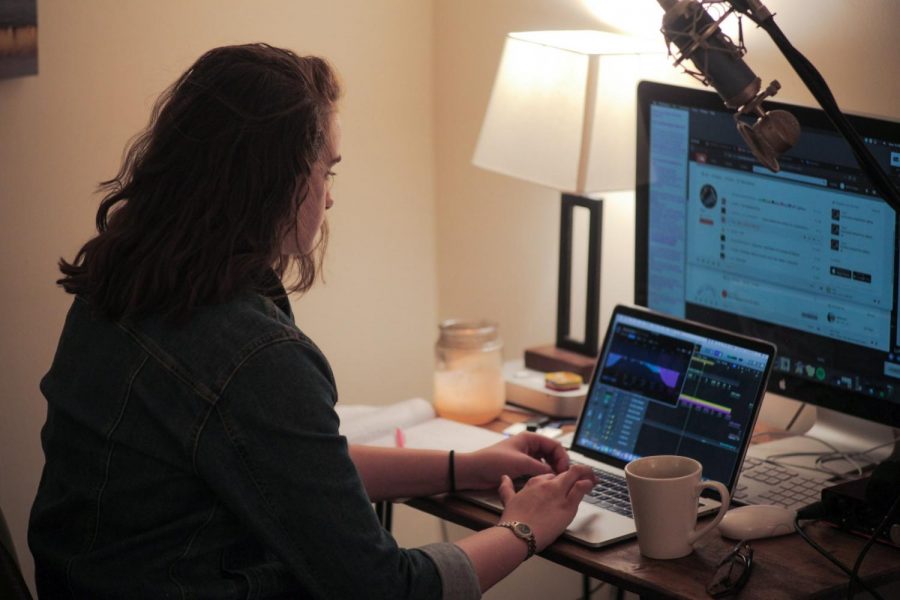
Drake also noted that people who have now stayed inside for extended periods of time may not be as receptive to content. With nowhere to go and little else to do, some people may be overwhelmed by the sheer volume of media to consume, whether related to the virus or not.
“The captive audience might not be as captive as you think,” Drake said. “Everyone’s so oversaturated with content. I personally have just found myself just needing to close my laptop and lay on my bed with my eyes closed. Yes, people are at home and consuming content more, but they also might be kind of sick of it.”
As such, Drake has been careful to frame her content as something that is cognizant of how life has changed since the pandemic struck, but still retains a more positive, lighthearted tone.
“I would never say, ‘Don’t talk about what’s going on,’ but I would say, ‘How are we processing it?’” Drake said. “I think, as creators, we have an obligation to help people process this.”
Going forward, Drake has plans for other radio-related artistic projects and subjects concerning the response to the pandemic.
“Something that I think is really important to look at is people who are working on the front lines right now,” Drake said. “Art is a great way to do that. Putting together a piece of art that is dedicated to that, that’s something I have in the works but I don’t know exactly what form it’s going to take yet.”
Drake concluded that artists and entertainers who still have the means to create content have a duty to entertain now more than ever. For the people who are frightened, anxious or worried about the pandemic, art and entertainment can be a form of levity in a time where it’s harder to come by.
“If you’ve identified that you’re able to continue, do so,” Drake said. “Be that source of positivity and normalcy and consistency for people, because people are craving it.”
Email Ethan Zack at [email protected]. Read more from Washington Square News’ Spring 2020 Arts Issue.


























































































































































